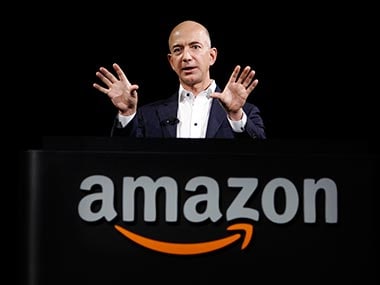Jeff Bezos, the founder of Amazon.com bought over the venerable US newspaper Washington Post for $250 million. The figures are stark and send out one clear message to investors and businessmen. Old is not gold. History means nothing in a changing world. Go by future and not by past. If a business is making money just because it exists it is no reason to run or buy the business. If a business is being built for the future, then that is the business to be in or buy.
Washington Post was run by the present owner since 1933. Amazon.com started in 1994. Amazon has a market capitalization of $137 billion while Jeff Bezos is worth U$25 billion. Washington Post is worth a paltry $250 million even though it has age, position, brand and everything else going for it.
One can say it is the new economy taking over the old economy. The present owners tried hard to make the paper compete in an internet world but could not succeed. The management clearly did not have the foresight of going digital earlier and could not catch up when the web overtook print media in the US.
[caption id=“attachment_1017113” align=“alignleft” width=“380”]  The stark contrast in the fortunes of Amazon.com and Washington Post should set minds of businessmen and investors in India and across the world thinking. AP[/caption]
Impact Shorts
More ShortsThe reasons for Jeff Bezos buying Washington Post in his personal capacity could be many but the fact is that the cost of the acquisition is pittance as compared to his personal wealth. He may or may not succeed in turning around the paper but he will definitely change the way the paper functions. Washington Post will now become a 2013 entity that is looking ahead into the future and not a 1933 entity living on its past glory.
The stark contrast in the fortunes of Amazon.com and Washington Post should set minds of businessmen and investors in India and across the world thinking. The first thought should be whether the business is living in the present and looking to the future. A business built in the past and looking at the present is not a business to be in. The second thought should be whether it is worth it at all to be in a business even if it is profitable. A profitable business that is not growing or not getting market value will see other businesses growing and overtaking it. Ultimately it may get acquired like Washington Post.
India has seen such drastic valuation changes in the last two decades. Stark examples are the market caps of companies of old business houses. TCS market cap is Rs 366,000 crores while Tata Steel market cap is Rs 20,000 crore. Idea market cap is Rs 52,000 crore while Hindalco market cap is Rs 16,300 crore. Tata Steel is ages old while TCS is not even one third the age of Tata Steel in the Tata group of companies. Idea is baby while Hindalco is a grandfather in the Birla group. TCS and Idea are new age companies and they are by far the most valuable for the groups.
Tata’s and Birla’s have done well to be in new age businesses but many old business houses are seeing the young go past them and are becoming irrelevant in the scheme of things. Many should question their own existence while investors should shun such businesses houses.
The Jeff Bezos buying Washington Post news should be etched in the minds of business houses and investors for decision making. Future wealth creation depends on it.
Arjun Parthasarathy is the Editor of www.investorsareidiots.com a web site for investors.


)

)
)
)
)
)
)
)
)



